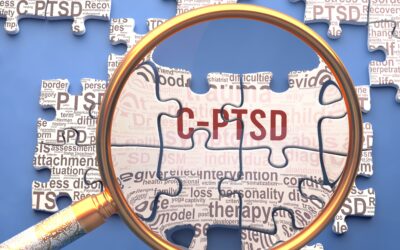What is trauma?
Trauma is a personal experience that can only be defined as traumatic by the individual who experienced an event or ongoing events as traumatic. When I work with clients who have a trauma background, it varies greatly what their experiences have encompassed and the impact it leaves on a person. For most of my clients when they share a traumatic experience, it can include feelings and events of overwhelm, helplessness, loss, hurt, pain, neglect, and numbness.
Call todayExamples of traumatic experiences (but this is not an exhaustive list):
-

Ongoing physical, verbal, and sexual abuse as a child
- Domestic abuse including verbal, emotional, financial, physical, and sexual abuse
- Growing up with parents or primary caregivers who were neglectful, emotionally unavailable, or chaotic in their approach to parenting
- Living with a family member with mental health or substance use disorders
- Sexual assault and rape
- Violence in the community and school, war, or terrorism
- Poverty, racism, discrimination, and oppression
- Careers involving life-threatening situations and being first responders to emergencies
- Natural disasters
- Serious accidents, life-threatening illness, or sudden or violent loss of a loved one
- Educational or work experiences with ongoing bullying, intimation, discrimination, violence and sexual harassment
- Medical complications
What happens to a person after a traumatic experience or ongoing trauma?
This is a hard question to answer because it really depends on the person and what the traumatic experience is. Some people can experience horrific things and it doesn’t have an on- going negative impact on them. The person is genuinely fine. For other individuals, traumatic experiences weigh on them – blocking them from everyday healthy functioning or experiencing joy.
 Potential effects from trauma:
Potential effects from trauma:
- Self-destructive behavior
- Feelings of guilt, shame, and unworthiness
- Poor executive functioning
- Irritability, angry outbursts or aggressive behavior
- Being easily startled or frightened or always being on guard for danger
- Feeling depressed, hopeless, numb, detached, and dissociating
- Fear of recurrence and anxiety focused on flashbacks involving the trauma
- Avoidance of emotions, sensations, or activities that are associated with the trauma

How does someone heal from trauma in therapy?
Trauma impacts everyone differently, so the healing journey and goals for individuals in trauma therapy vary from one person to the next. The most important thing for clients who are starting to work with a trauma therapist is that the client feels that this is someone they can potentially see themselves being vulnerable with and feeling safe with at some point. Usually the biggest obstacle for someone with a trauma background is being able to feel safe – in terms of both being in their body and trusting themselves and being able to trust another person.
When collaborating with clients, we go at the pace that is comfortable for them. Pace is different for everyone. Some of my clients with a trauma background will actually move at a fast pace in counseling while others move very slowly because that is what feels comfortable for them. Sometimes, it is moving fast one week and then taking it slow for a month. Everyone’s healing journey is different.
It’s also important to use therapeutic modalities that are a good fit for the client and designed for trauma. I hold a number of trauma certifications and I am trained in a number of therapeutic modalities specifically to help with trauma, so there is a wide range of approaches to see what will work best. The top trauma approaches I use with clients are CBT (Cognitive Behavioral Therapy), EMDR (Eye Movement Desensitization and Reprocessing), HeartMath, Polyvagal Techniques, and CPT (Cognitive Processing Therapy).
If you are someone who has experienced trauma and would like to learn more about what it is like to work with me or the different approaches to trauma therapy and counseling, please contact me or book a phone consult.
What is Complex Post-Traumatic Stress Disorder (c-PTSD)?
Most people have heard of Posttraumatic Stress Disorder (PTSD) when learning about symptoms people experience from traumatic events such as being a first responder to a natural disaster, serving in a military operation overseas, or being the victim of a sexual...
Grief and Loss: Cope with Heartbreak, Seek Help, and Finally Heal
“He was my best friend, my everything. I just wish I could get past the heartbreak and pain to enjoy the happy memories.” “My heart aches for her every day. I still reach for her at night, but the bed is empty. I don’t know if life will ever have meaning for me again....
Resist the Grief Police… Exercise Your Right to Grieve Your Own Way
“It’s been a year. Shouldn’t you be over her death by now?” “I can’t believe she’s already going out with her friends. That should tell you how much she really cared about him.” Have you ever heard statements like these? If so, you’ve had an encounter with the grief...




